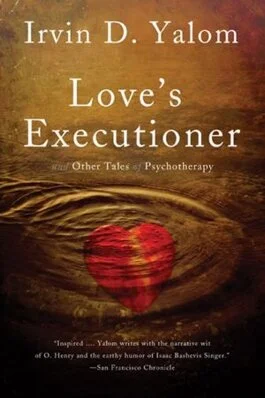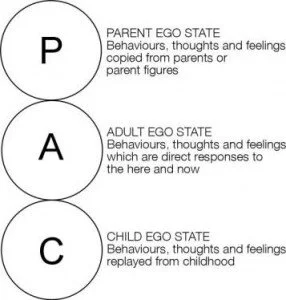How Can Transactional Analysis Help You?
When I first read the book ‘Tales of Psychotherapy’ by Irvin D Yolm, I was instantly hooked on the process of psychotherapy; the relationships between therapist and client and the extent of possible change in a client’s life.
I was still studying my Psychology degree and was pondering where I would take my degree; what career was I working towards? I did a bit of research and I found Transactional Analysis (TA). Initially I was blown away by personal accounts of TA; how the theory and relationship with a therapist has facilitated people to make such big changes. People would describe the emotional investment for therapy as difficult at times but then would say that the changes they were able to make meant that their lives were so much better and there was no going back – I wanted to be part of this!!
I found my training institute in Manchester and there my journey began, as did my relationship with myself. That may sound a little cliché but my whole life changed; I had a career direction with something that I truly believed in and was reaping the benefits in my own therapeutic journey (throughout the 4 years training, trainees must be in TA Psychotherapy).
I hope I have put across my love of TA so far but I'm not wanting this blog to be about my relationship with TA but about how you could also have a relationship with TA; I'm going to tell you about some basic TA theory in hope that you can relate to it and have more insight into your own internal world.
Topics: Script, PAC Model and Drama Triangle.
Script:
Script as you and I know it is something that actors use to learn their lines, to direct them through a story; this is not unlike the TA theory of Script. TA theory, by Eric Berne, suggests that we all have our own Script which is developed rather than given, and although it is continually up-dated through life, the major work is done by the time we reach 7 years old. Our Script is formed by our experiences with which we subconsciously make decisions about ourselves, others and the world i.e. you may have decided, because your parents were work-a-holics, that you were not lovable, that others were more important than you and to survive in this world, you must please others so that people will always need you.
It’s important to say that these decisions are made as a child, with limited resources that generally rely on fantasy in place of information and problem solving skills, they are also made, more often than not, out of awareness. If a child were to develop their script with these decisions, they would be reinforced every time they are left with the child minder although they cry and contest their parents leaving, they would be reinforced every time they feel loved when they have been praised for being good and helpful; and through them being reinforced, the decisions are still relevant and they are carried into adulthood. So what of it? Well our life scripts become a problem for us when we recognise that we seem to have the same damaging patterns i.e. that in relationships you continually feel as though you are fighting for love or that you (subconsciously) feel as though you are not deserving of love and so do things to sabotage it, like cheat on your partner or act with intense jealousy to the point your partner leaves. With very different decisions, come very different problems and patterns.
TA psychotherapy facilitates a client to understand their internal processes, to understand why their script was developed the way it was and to use present day, adult thinking, to reality test their capacity to change and challenge their out of date decisions, by making new ones.
PAC Model
I often teach clients the PAC model when we are discussing how they communicate with others and the feedback I have had is that is it really useful. The PAC model is more than a communication tool, though for this blog, communication will be the focus as it is easily accessible from reading about it. Again, Eric Berne developed this model and suggested that we all have an internal Parent (P), Adult (A) and Child (C) ego-state (spelt with a capital to differentiate from actual parent and child); when we are using these ego-states we are thinking, feeling and behaving as parental figures we have had in our lives or how we did when we were a child; when we are not using parental or child attributes in a situation, we are said to be acting in the here-and-now which is our A ego-state.
So let me give you some examples of how you can use this theory to assist your communication.
I will be using the word transactions, if I say ‘hello, how are you’ that is one transaction and if you reply ‘terrible, I've had no sleep at all’, that is another transaction.
Imagine how critical parents speak to children, they may wag their finger, say you should/shouldn't, you need/must/have to…..when someone is speaking from their critical P ego-state the transaction is generally directed to the others' C; when it is received and responded to by their C ego-state they may swallow the phrase whole and adapt to it, become upset or perhaps feel shamed (these arejust some examples to illustrate) as would a child; alternatively they may respond from their P ego-state and confront what has been said in a similar manner i.e. by raising their voice and being critical. For transactions to be successful, the lines between each person’s ego-states must be like I have described (P-P, P-C, C-C, A-A), these are called complimentary transactions; here are the diagrams to illustrate it:
I hope you managed to follow that, so are you wondering how you can use this?
The key is to be mindful, when you’re communicating, which ego state you are coming from and whether it is the right one for what you want to achieve. If you are trying to tell someone how you feel and the purpose is to get your needs met and feel better for off-loading and being heard; saying ‘you need to think about how I feel more, you shouldn't be going out all the time but should be spending time with me instead’ may indeed insinuate how you feel but what you are actually communicating is what is wrong with the other person and being parental in the way you say it. It is highly likely that you come up against an angry P ego-state that may resist your needs, shout and tell you what is wrong with you in exchange, or you may have a sulky or rebellious C ego-state to contend with. If however, you use your A ego-state and say something like ‘I'm really struggling at the moment with not seeing you, I feel as though we've not spent much quality time together and I'm missing you’, you are much more likely to have an adult response. If you’re communicating from the here-and-now, using your adult capacity to communicate and solve your problems, the other person is much more likely to stay in their A ego-state and respond in a way that meets your needs.
It’s also useful for you to be aware of the ego-state that has been activated in you when someone is speaking to you. If someone has spoken to you in a very authoritative manner, and you have learnt to be aware of how you generally respond to this, you can choose to step out of that pattern and reply from A, if you're able to maintain your A ego-state, the other person will either shift to their A or the whole transaction will not be successful and the conversation will stop; this is because the lines of transactions between ego-state are not complimentary – this is how you can gain more control of how you communicate.
Drama Triangle
The theory of the Drama Triangle is really useful to help clients become aware of their behaviours in relation to others. Each person generally has 2 favourite positions on the drama triangle; Victim, Rescuer or Persecutor, and prefer to interact with those that respond from a complementary position, i.e. someone who likes to play rescuer (doing things for people) will enjoy those who play a victim position as they will perceive their recognition for this as positive.
Through therapy, clients are able to understand their roles more, for example, I often encounter rescuers that are very familiar with feeling resentful when people do not invest thought and energy in them as they do others; through our work, the client will discover (using theory of Script) why they have taken this position and how this position discounts others’ ability to ask for help or sort the situation out themselves – this then gives them permission to relinquish responsibility. They would also learn how their feeling of being resentful is a sign that they have switched to the victim role, perhaps feelings as though no one really cares, and those they once rescued are have switched from victim to persecutor, perhaps for taking for granted and taking advantage of their efforts.
The Drama Triangle can be transforming when trying to break negative life patterns, through therapy, the triangle can be used to create positive stances that recognise choice and abilities of both parties; then life and choices can become more autonomous and enjoyable.
I find it hard to blog about such subjects and to feel satisfied with serving the theoretical topics justice but I hope you have managed to take something away from what I have written. My aim was to share a few of the things that I love about TA, to show how accessible they are and perhaps entice you to share the love with others, and yourself. I would really welcome any comments or questions you have, you could comment here directly of contact me privately if you have any questions relating to yourself and your own relationships.
As I stated at the beginning of this blog, I live my life much differently to the way I did prior to personal therapy and finding TA; if you manage to gain better understanding of one aspect of yourself through the blogs I write; I would be happy.
I know this may get shared in different areas to that of Hull, so I thought it would be a good idea to share the links to others that I trained with, in case you would like to speak to someone in your own area; Natalie and Charlotte are in the Manchester and Katy Lee is in Hertfordshire.


